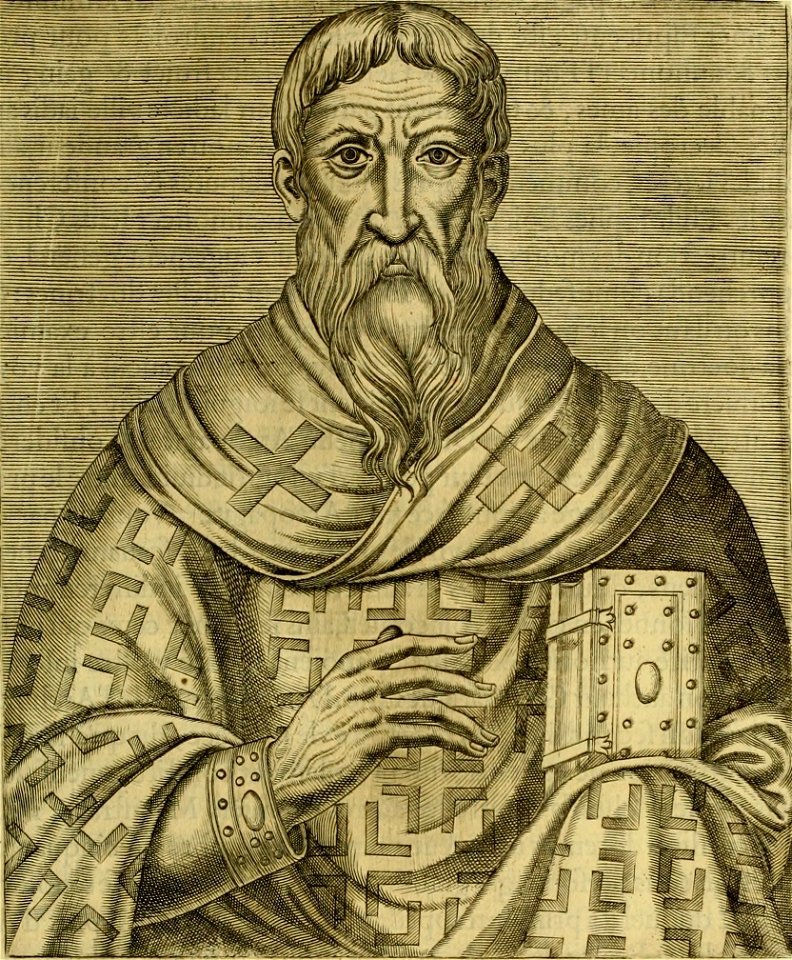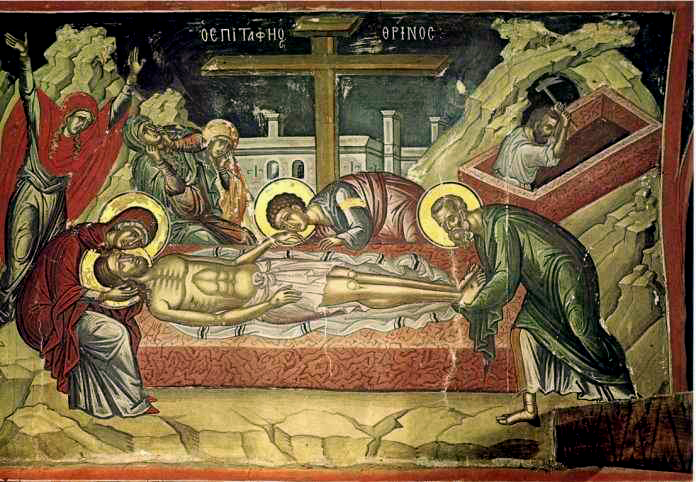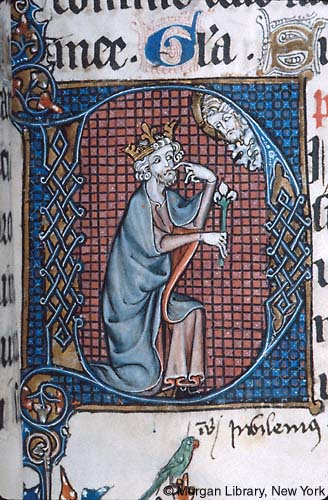So much of the Christian life is grappling with the paradoxes Scripture gives us. God is three, God is one. God is infinite, beyond all imagining and yet God poured himself out into the finite world. God is sovereign, and yet we have free choice. God will favor His people, but they will be persecuted. Jesus is both man and God.
Lots of Christian writing and music extols the biblical attributes of God, such as Elohim by Hillsong. The chorus is inspired directly by two passages in Scripture: 1 John 4:8’s assertion that God is love, and the list Paul gives us of the attributes of love in 1 Corinthians 13.
God is love (1 John 4:8), and love is not jealous (1 Cor 13:4).
But…there’s a problem with that.
As Moses says in Deuteronomy 4:24, For the Lord your God is a devouring fire, a jealous God.
This is hardly a one off statement. Over and over again in Scripture, we heard that God is jealous (Exodus 34:14, Deuteronomy 6:15, Joshua 24:!9 Nahum 1:2,etc.) How can this be?
The answer, as Pseudo-Dionysius arrives at in his fifth century study of God’s names, is that every description of God is limited because we as humans are limited.

So, God’s love and God’s jealousy are both like and unlike human love and human jealousy. There are limits to how much human language and human minds can capture what God’s love is like. There are limits to how much human language and human minds can capture what God’s jealousy is like. Scripture gives us stories, images, exhortations, about both God’s love and God’s jealousy, giving concrete results of both these attributes that are recognizable/intelligible to us humans.
We can read 1 John 4 to hear the amazing story of God’s love for humanity. And we can study this love all our lives, but this is a love that surpasses all knowledge (Ephesians 3:19). Through this journey, we come to know God’s love, but even now we see as only a mirror darkly – when we arrive home, we will see God face to face (1 Cor 13:12). In the same way, we can see graphic depictions of God’s jealousy, such as in Ezekiel 16. That jealousy, though, is not like our jealousy – in part, because even in the midst of destruction wrought by that jealously, God’s mercies are new every morning (cf. Lamentations).

We, as attentive readers of Scripture, like Pseudo-Dionysius, grapple with the words we read and try to listen to the Spirit to understand, in each image or metaphor Scripture provides:
- How is God like this image?
- How is God unlike this image?
We affirm what we can affirm, we negate what we must negate. God is like One, but God is also Three – so God’s Oneness cannot but oneness as we understand it, or threeness how we understand it. God is One and God is Three and our concepts of three-and-one break when they try to box the Triune God.
But it’s not just God
But it’s not only our human attempts at describing and understanding God that are limited. Humans, our lives and our creation, are many things in Scripture. We are dust yet a little lower than God (Psalm 103:13-14 & Ps 8:5). We are made from this world but not of this world. We are God’s beloved and the beings that grieve His Spirit. We carry God’s image and yet we are wicked and sinful. We live both with the promise that God makes us lie down in green pastures, and the reality that, like Job, for us life is full of loss and pain.
Metaphors and imagery in Scripture help us grasp the ungraspable, and are helpful to an extent. This is true for the theme of this blog, as well. It is true that this is not our homeland, and this blog explores the ramifications of that idea. But there are limits to my positive interpretation of our time on Earth. I am not seeing us as exiles, like Hebrews 11 would have it – which fails to capture both some of the imagery Scripture gives us to understand our state, as well as some of the realities people face. There are many reasons that people are far from home, and displacement and diaspora have a very different relationship to travel than my more tourist oriented perspective. There are limits to what this particular key can tell us about what life is like, and that’s okay. Traveling Theology is just one key out of many. And like any key, it is useful when it’s useful – it opens the doors that it can open – and cannot really touch the rest.
Our life on earth is sort of like a long journey, far from home.
Our life on earth is sort of unlike a long journey, far from home.
Limitations
However, my theme here has its limits. Travel is often not voluntary.
As of 2022, the UN Refugee agency four that there are 108.4 million people by war and violence displaced worldwide – and 52% originate from just three countries: Syria, Ukraine, and Afghanistan. But that leaves all the other refugees, from civil war torn countries like Yemen, Central African Republic, and Mali to name a few besides the more well-advertised crises in Libya, Myanmar, and Ethiopia. It does not include countries, like Mexico and Colombia, where the US war on drugs and the domestic drug wars are driving displacement crises [1]. Some forced travel is the result of modern slavery: September 2022 Global Estimate of Modern Slavery found that 27.6 million people are in forced labor, be in the sex trade or another type, and these people are frequently trafficked across borders away from anyone they know or who can help them.
I am constantly reminded of how little I seem to be able to keep up with in the world.
For example, A student I met at Bryn Mawr mentioned in passing that she was stateless – at the time, I didn’t even know that it was possible to be stateless. But at least 10 million people around the world are – Kurds in Iraq, Roma across Europe, children of foreign workers in Cote d’Ivoire, Palestinians…
All around us, people, and maybe you yourself, are forced to flee.
A man I met on the bus in Cyprus was a refugee from Cameroon, fleeing insurgents. I had not even know there was an insurgent crisis in Cameroon, or that there were similar crises in 19 African countries.
Scripture speaks more often to these experiences than my more positive travel theology. Scripture tells stories of violence, of exile, of slavery. It tells personal stories, of Joseph sold by his brothers and his fate in Egypt. It tells national stories, of violence enacted on and enacted by God’s People – in their crusade against, for example, the Hethites, Amorites, Canaanites, Perizzites, Hivites, and Jebusites (e.g. Deut 20:16-18), and in their fight for survival against the Assyrians, the Philistines, the Babylonians etc. When Hebrews 11:13 and 1 Peter 2:11 call Christians sojourners (παρεπίδημος), the image is that of David, at the end of his rope in Psalm 39, pleading for mercy because no one else can help him:
“Hear my prayer, O Lord,
and give ear to my cry;
do not hold your peace at my tears.
For I am your passing guest,
an alien, like all my forebears.
Turn your gaze away from me, that I may smile again,
before I depart and am no more.
Psalm 39:12-13 [LXX 38:13-14]

Our life on earth is sort of like a long journey, far from home.
Our life on earth is sort of unlike a long journey, far from home.
Traveling theology, conceptualizing life like a long touristic trip, is one way of thinking about our experiences of life on earth. It is one exploration, with strengths and limitations, to understanding life on earth. It does not capture all of Scripture’s rich testimony about the nature of human life, nor does it capture everyone’s experiences of travel.
[1] Viridiana Rios Contreras, “The Role of Drug-Related Violence and Extortion in Promoting Mexican Migration: Unexpected Consequences of a Drug War,” Latin American Research Review 49, no. 3 (2014): 199–217.
Leave a Reply